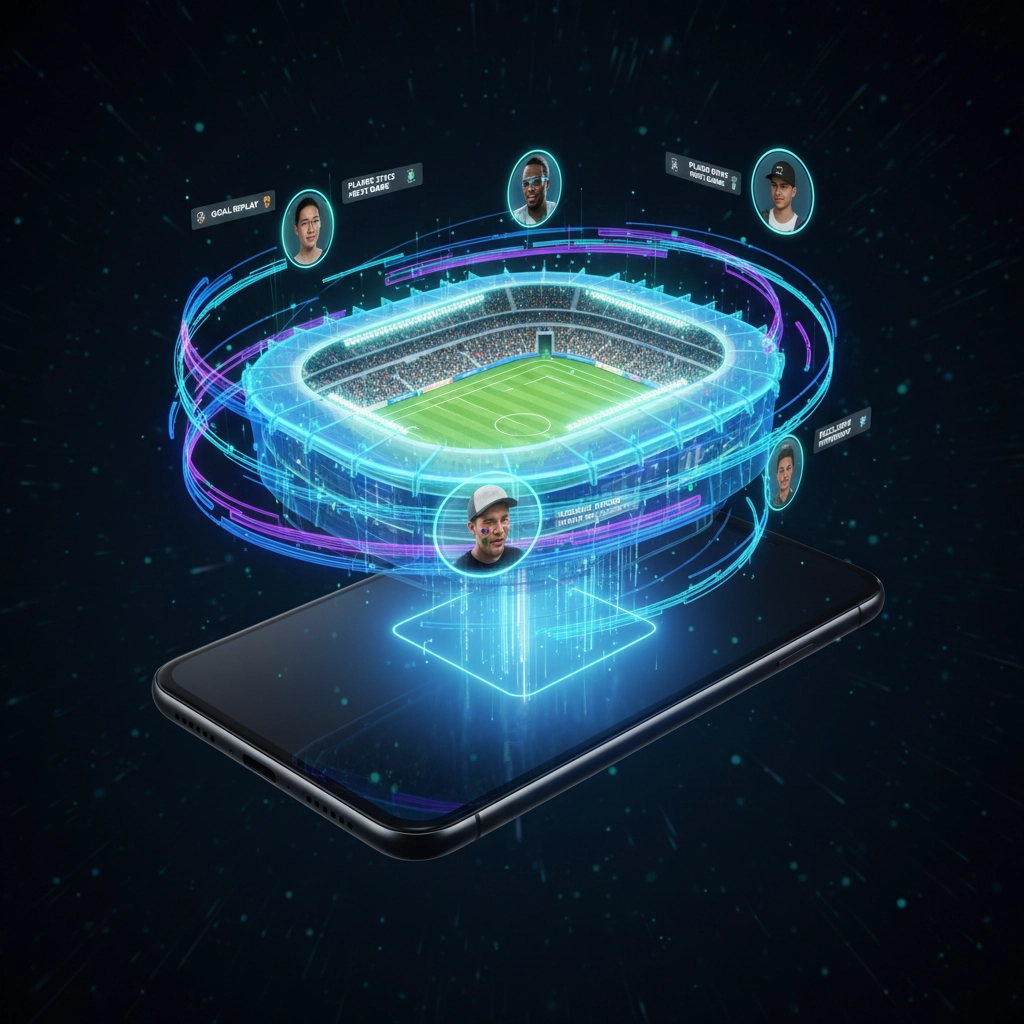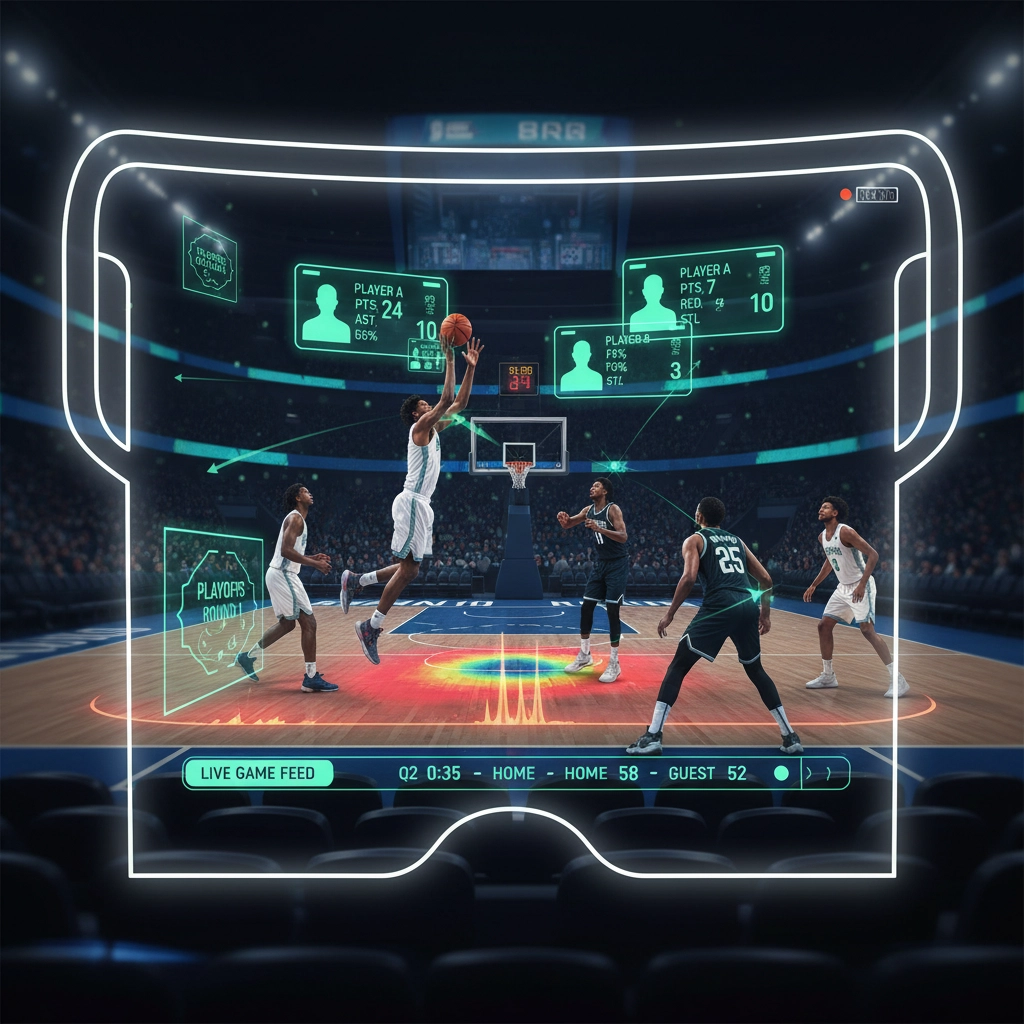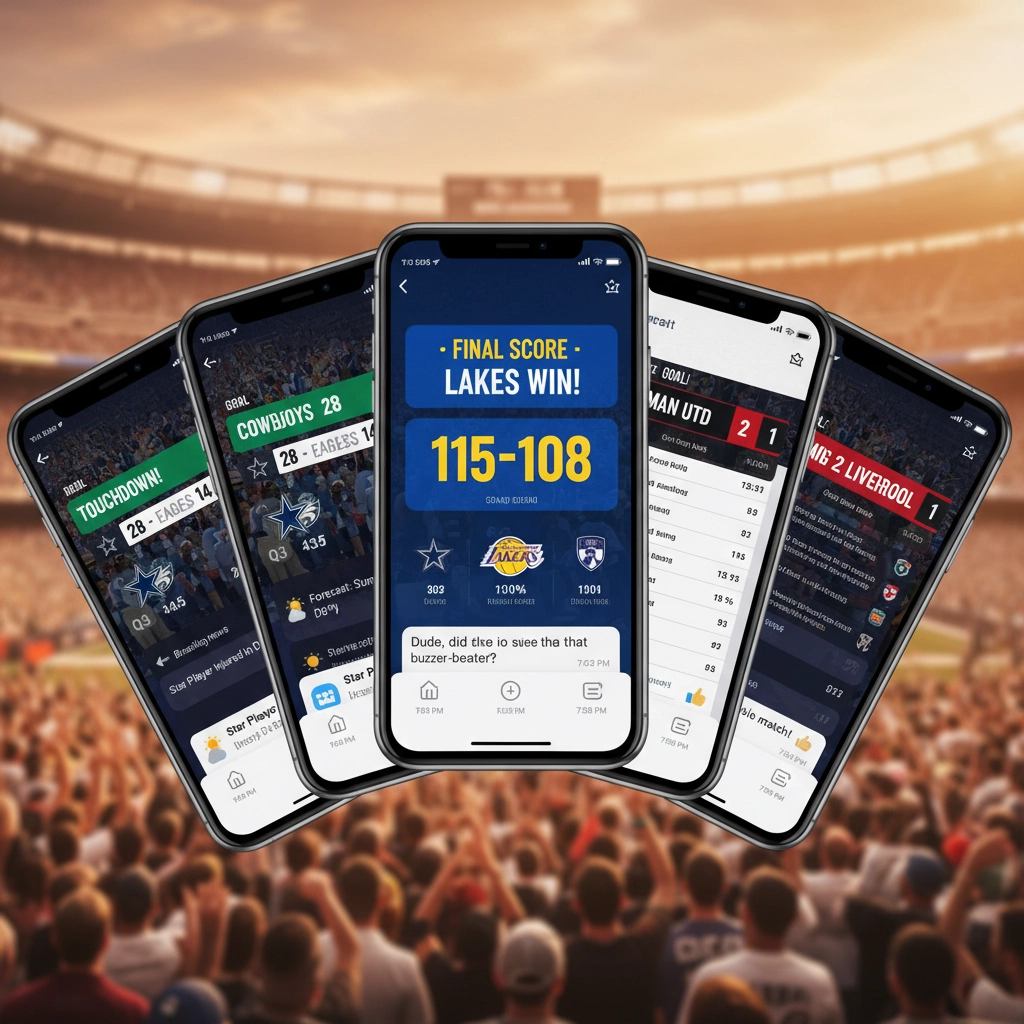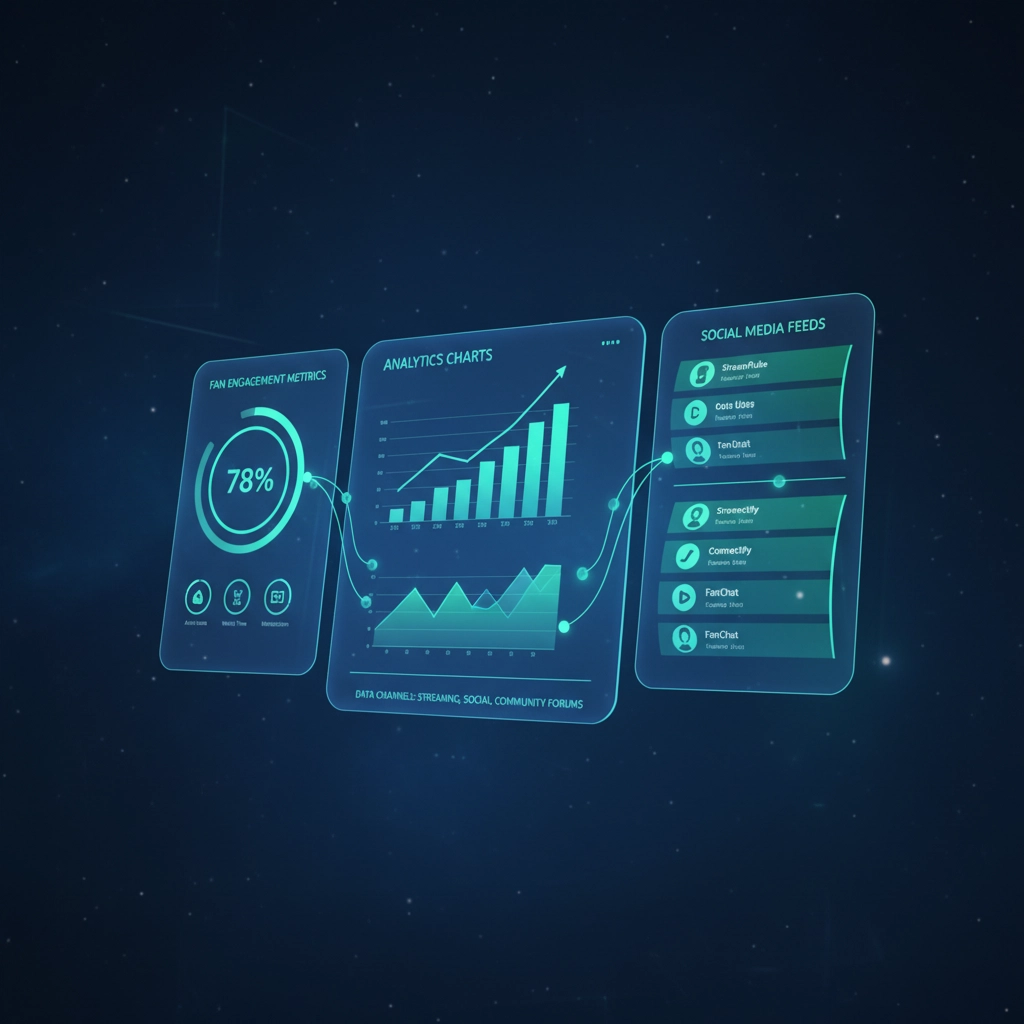Sports fan engagement has completely transformed in 2025. Gone are the days when fans were happy just watching games on TV. Today's fans want personalized experiences, real-time interactions, and genuine connections with their favorite teams and athletes.
The numbers tell the story: 55% of sports fans don't receive relevant communication from teams, and 61% feel priced out of the sports they love. Smart organizations are fixing this by using AI, community features, and cutting-edge technology to create experiences that actually matter to fans.
AI-Powered Personalization Changes Everything

The biggest game-changer in sports engagement is AI-driven personalization. Instead of sending the same generic email to every fan, teams now use machine learning to understand individual preferences, purchase history, and engagement patterns.
Here's what actually works:
Smart Segmentation: Teams divide fans into meaningful groups like superfans, casual attendees, and first-time visitors. Each group gets content tailored to their specific interests and engagement level.
Predictive Recommendations: AI analyzes fan behavior to suggest merchandise, tickets, and experiences they're most likely to want. This isn't just adding someone's name to an email: it's delivering genuinely relevant content.
Dynamic Content: Website and app content changes based on each fan's interests. A basketball fan might see highlights from recent games, while a merchandise collector gets updates on limited edition releases.
The key is collecting meaningful data and actually using it. Teams that nail personalization see engagement rates jump 300% compared to generic campaigns.
Building Real Communities, Not Just Followers
Social media followers don't automatically equal engaged fans. Real engagement happens when you build genuine communities where fans connect with each other, not just consume content.
Behind-the-Scenes Content: FC Barcelona's TikTok account has 57 million followers because they share exclusive practice footage, locker room celebrations, and warm-up routines that fans can't see anywhere else. Formula 1 does something similar with team radio clips and casual driver interactions.
Fan-Generated Content: The most engaging content comes from fans themselves. Campaigns that encourage fans to share their game-day rituals, reactions, and experiences create authentic connections that branded content can't match.
Community Spaces: Reddit forums, Facebook Groups, and Discord servers have become essential spaces where fans debate, celebrate, and build relationships. Smart teams monitor these spaces for insights and occasionally join conversations authentically.
Platforms like Fanz.us are designed specifically for this kind of community building, giving sports fans dedicated spaces to connect around their shared interests.
Technology That Actually Enhances the Experience

The coolest sports tech isn't just flashy: it genuinely improves how fans experience games and connect with teams.
Augmented Reality: AR ranked #1 as the most revolutionary sports tech for the next 3-5 years. Teams use AR for virtual stadium tours, interactive player stats during games, and immersive replay experiences that make fans feel like they're on the field.
Gamification: The gamification market will hit $78 billion by 2030 because it works. Live trivia during games, prediction contests, achievement badges, and leaderboards turn passive viewers into active participants. Fans compete with each other, earn rewards, and stay engaged throughout entire seasons.
Real-Time Interaction: Live polls and quizzes during games let fans participate from their phones. Weather delays become opportunities for fan challenges. Halftime becomes community time with instant voting on best plays or predictions for the second half.
The key is making technology feel natural, not forced. If fans have to download three apps and create five accounts to participate, they won't bother.
Real-Time Communication That Matters

Fans want immediate updates about everything that affects their experience. Smart teams use messaging platforms like WhatsApp, SMS, and push notifications to deliver instant updates that fans actually need.
Game Day Essentials: Parking updates, weather delays, lineup changes, and injury reports delivered directly to fans' preferred channels keep everyone informed and reduce frustration.
Breaking News: Player trades, coaching changes, and major announcements reach fans instantly. The teams that break their own news build stronger direct relationships with fans.
Personalized Alerts: AI determines what each fan cares about most. Season ticket holders get different updates than casual fans. Fantasy players get stat updates that merchandise collectors don't need.
The goal is making fans feel like insiders, not bothering them with irrelevant information.
Social Media Strategies That Actually Work
Every platform requires a different approach, but the principles remain the same: authenticity, consistency, and genuine value for fans.
TikTok: Short, entertaining content that shows personality. The NFL's #TikTokTailgate campaign succeeded because it gave fans unique pregame experiences they couldn't get anywhere else.
Instagram: Behind-the-scenes photos and stories that make fans feel connected to players and teams as people, not just athletes.
Twitter/X: Real-time updates, live game commentary, and quick responses to fan questions and concerns.
Emerging Platforms: Early adoption of new platforms gives teams advantages, but only when they understand what makes each platform unique.
The biggest mistake is treating all platforms the same. What works on Instagram doesn't work on TikTok, and what succeeds on Twitter fails on LinkedIn.
Implementation Strategies That Get Results

Starting with fan engagement improvements doesn't require massive budgets or complete system overhauls. Here's how to begin:
Audit Current Data: Most organizations already collect fan information but don't use it effectively. Start by understanding what data you have and identifying gaps in fan preferences and behaviors.
Set Up Automation: Real-time notifications during key moments can be automated. Weather delays, scoring updates, and schedule changes should reach fans instantly without manual intervention.
Test Segmentation: Even basic fan segmentation: season ticket holders versus single-game buyers: can dramatically improve engagement rates. Start simple and get more sophisticated over time.
Monitor and Iterate: Track response rates to different types of content and communication. What times of day get the best engagement? What types of content generate the most responses? Use data to refine your approach constantly.
Enable Fan Control: Let fans choose what types of updates they want and how often they want to receive them. Opt-in preferences keep engagement high and reduce unsubscribes.
Measuring Success Beyond Vanity Metrics
Follower counts and likes don't tell the whole story. Real fan engagement metrics include:
Engagement Rate: How many fans actively interact with content relative to total reach
Community Growth: New members joining fan groups and community spaces
Repeat Engagement: Fans who participate in multiple activities or events
Conversion Rate: Social media engagement that leads to ticket sales or merchandise purchases
Sentiment Analysis: Whether fan conversations about your team are positive, negative, or neutral
The most important metric is whether fans feel more connected to your team after engaging with your content and community.
The Future of Sports Fan Engagement

Fan engagement in 2025 recognizes that sports are about more than just games. Modern fans expect complete ecosystems of experiences, from exclusive content access to gamified interactions, personalized communications, and cutting-edge technologies.
Organizations that build comprehensive, data-driven engagement strategies create lifelong supporters who feel like genuine parts of their teams' stories. These aren't just fans: they're community members, brand ambassadors, and co-creators of the sports experience.
The teams and athletes who understand this shift are the ones building sustainable, engaged communities that last decades, not just seasons. Whether you're managing social media for a professional team, building a personal brand as an athlete, or creating content for sports fans, the principles remain the same: authentic connection, genuine value, and respect for fans as individuals with unique interests and preferences.
Success in sports fan engagement comes from treating fans as partners in the experience, not just consumers of content.
